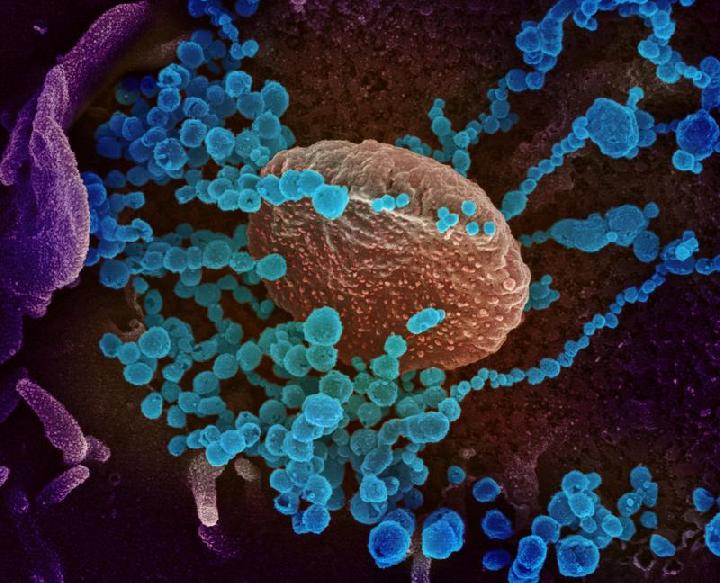Covid-19 Task Force: Contact Tracing Still Inadequate
Translator
Editor
10 October 2020 22:31 WIB

TEMPO.CO, Jakarta - Indonesia has seen an exploding number of cases in the past few weeks. The number of new cases per day tops 4,000 almost always set a new record each day. Covid-19 task force spokesperson Wiku Adisasmito said that with 320 laboratories in operation, testing has improved significantly. Alas, the testing capacity is not complemented with adequate close contact tracing for positive cases. "Tracing sure has not really been optimal," Wiku acknowledged during a special interview with Tempo via video last Wednesday, September 30.
As of October 2, Indonesia records over 295,0000 positive cases and close to 11,000 deaths. Wiku said testing and contact tracing remain the key to break the chain of Covid transmission among the public. In Jakarta alone where the highest number of cases is registered, contact tracers are able to reach only five to six contacts per each positive case. "Tracing is hampered by social stigma and limited contact tracers," said the professor of Public Health at the University of Indonesia.
Speaking to Tempo reporters, Wiku said the Covid-19 pandemic was a multi-dimensional crisis requiring cross-sector cooperation. Unfortunately, he noted a huge sectoral ego among both ministries and institutions. During the interview that lasted nearly two hours, Wiku also discussed the appointment of Maritime Affairs and Investment Coordinating Minister Luhut Binsar Pandjaitan to lead the battle against the pandemic in 10 critical provinces as well as the departure of Akmal Taher from the task force.
The number of Covid-19 positive cases is still climbing fast in Indonesia ranking the highest in Southeast Asia. Why isn't the condition improving?
Contact tracing has not been optimal for sure; but for testing, the improvement has been significant. The WHO's (World Health Organization) target for testing capacity is 1 per 1,000 residents per week. Jakarta, West Sumatra, Bali, South Sulawesi and Papua have already met that target.
What is the testing capacity at this stage?
We now have 320 laboratories. The daily testing capacity of the total equipment in these labs is 62,000 samples and today it registered 45,496.
But the national rate is still below the WHO target.
For 267 million people, the total number of tests per week should be 267,000. The current number is 189,000 which is 70 percent. This is the national average including those of the five provinces that I mentioned which already reached five to six times above the WHO standard. The testing based on the WHO standard should be prioritized for the regions with high infection rates as well as high populations, not for all the regions. Why should we be chasing the target for sparsely populated regions with low prevalence?
What about our current contact tracing capacity?
We are still lacking in this area. If I'm not wrong, the current capacity is only five to six contacts per case and that's only valid for Jakarta. From now till December, we will be focusing on tracing. We should be able to trace 10 close contacts of each positive patient. If the 10 contacts are tested in all the regions with high populations, the potentials to catch cases are automatically higher. As such, the mitigation efforts will also be better.
What are the obstacles faced by the regions in the red zone that still can't bring down the number of cases?
Usually, they need reagents and PCR (polymerase chain reaction) test kits and that in my opinion is a simple issue to solve. We have no problems sending them to the regions, but the communication mechanism should be improved from time to time. We should give the thumbs up to the successful regions. For those that are still struggling should let us know urgently if they need help.
What about the regions that in fact refuse to increase the testing capacity in order to avoid being put on the red zone status?
They can't. I can understand their concerns. We can see from the data, not just from the media but also from the regional governments themselves preparing for the regional head elections. If they've never done tests, how come the regions are green. We can see what the tests look like.
Are there many regions like that?
There are those who want to be like that. I will check them all.
Is it true that testing and tracing are not boosted nationwide to keep the number of cases down?
A lot of people look at the cumulative number and get scared by the rising number. Don't be afraid if the cases continue to surge every day. It means the testing capacity is increasing. In addition, the transmission rate would also be high. I'm sure these are the two causes (behind the fear).























